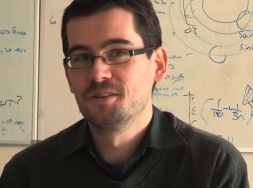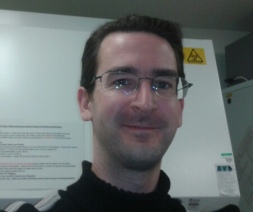College welcomes the fourth cohort of Junior Research Fellows
by Kerry Noble

New Junior Research Fellow, Dr Susannah Maidment
Imperial's ever-popular Junior Research Fellowship Scheme has just welcomed its fourth cohort of new Fellows to College.
The 21 new Fellows take the total number of scientists supported by the scheme to almost 80.
This year’s Fellows are working in areas that include neurodegenerative disorders, neglected tropical diseases, algebraic geometry, electromagnetic waves, synchrotron X-rays, optoelectronics, quantum mechanics and general relativity. They include researchers already working at Imperial, as well as those from external institutions including CERN and the Universities of Cambridge, Oxford and Tokyo.
The Fellowship scheme was set up in 2009 to help early-career researchers make the transition from postdoc to independent investigator by providing them with a competitive salary for three years and by encouraging them to build their research careers without any obligatory teaching or administrative duties.
It was my dream to create a new community of the brightest and best at College
– Professor Maggie Dallman
Principal of the Faculty of Natural Sciences
For the first time this year, the scheme has received funding from the Wellcome Trust for one Fellow in addition to the 20 posts supported by College.
Champion of the scheme and Principal of the Faculty of Natural Sciences, Professor Maggie Dallman said: “Even though the Fellowships are now in their fourth year, it is no less exciting to welcome this new cohort of talented and promising fellows to the scheme. It was my dream to create a new community of the brightest and best at College and give them the freedom to focus on their research. It is very rewarding to see this come to fruition.”
Ten of the original Class of 2009 have gone on to hold lectureships and one is enjoying a five-year fellowship. Many of them have also won international awards from bodies such as the Royal Society, published in high impact journals, and won significant research grants from prestigious funders.
Here we meet three of the new intake.
Susannah Maidment
Dr Susannah Maidment’s research as a JRF will focus on understanding more about dinosaurs such as Stegosaurus from the Upper Jurassic period, which lived about 150 million years ago. In particular, Dr Maidment is keen to know whether dinosaurs were distributed across the Earth in a similar way that animals are today, where the number of species steadily decreases the further we move away from the equator. By understanding more clearly this phenomenon, called latitudinal biodiversity, it could help scientists predict how the distribution of animal populations may change in the future.
Dr Maidment (pictured above), from the Department of Earth Science and Engineering, says: “I think my background as a geologist and vertebrate palaeontologist will enable me to come at my research from a different angle to my peers, which I hope will help me to carve out a niche in this field. Becoming a JRF will allow me to focus more heavily on my research and take it in a more independent direction.”
Eoin Butler

Dr Eoin Butler
Dr Eoin Butler is working in the Centre for Cold Matter with Professor Ed Hinds. Through his research he hopes to answer the question of how gravity behaves on microscopic scales, which physicists say is one of the next big outstanding hurdles to understanding how our universe functions. Using lasers and magnetic fields, his group will cool clouds of atoms to a point where they stop moving as individuals and start to act together as a 'collective matter wave'. When the atoms are in this uniquely sensitive state, they can be used to measure the gravitational field as close as one-thousandth of a millimetre around an object such as a tiny mass of metal.
He said: "The Universe is keeping many secrets from us about how it works. It's our job as scientists to use the latest developments to convince it to let us in on just one more at a time, however challenging that may be."
Mark Perry

Dr Mark Perry
Dr Mark Perry’s research is aimed at finding new treatments for people with severe asthma, who don’t respond to drugs currently available as inhalers. He plans to investigate a set of genes called lincRNAs, which he believes may contribute to making the walls of the airways more muscular and less responsive to treatments. He will grow lung muscle cells from healthy people and people with asthma and severe asthma, and measure their levels of lincRNAs. Then he will look to manipulate the levels of lincRNAs in people with asthma to see if they can revert to the same levels as normal patients.
“Recently, there has been little or no advancement in medications for people with severe asthma. I believe these studies will improve our understanding of how severe asthma develops and may lead to new avenues for treatment. This fellowship provides an excellent platform to establish my scientific career and help towards my long-term aim of reducing the burden of lung disease,” he said.
Article supporters
Article text (excluding photos or graphics) © Imperial College London.
Photos and graphics subject to third party copyright used with permission or © Imperial College London.
Reporter
Kerry Noble
Department of Surgery & Cancer